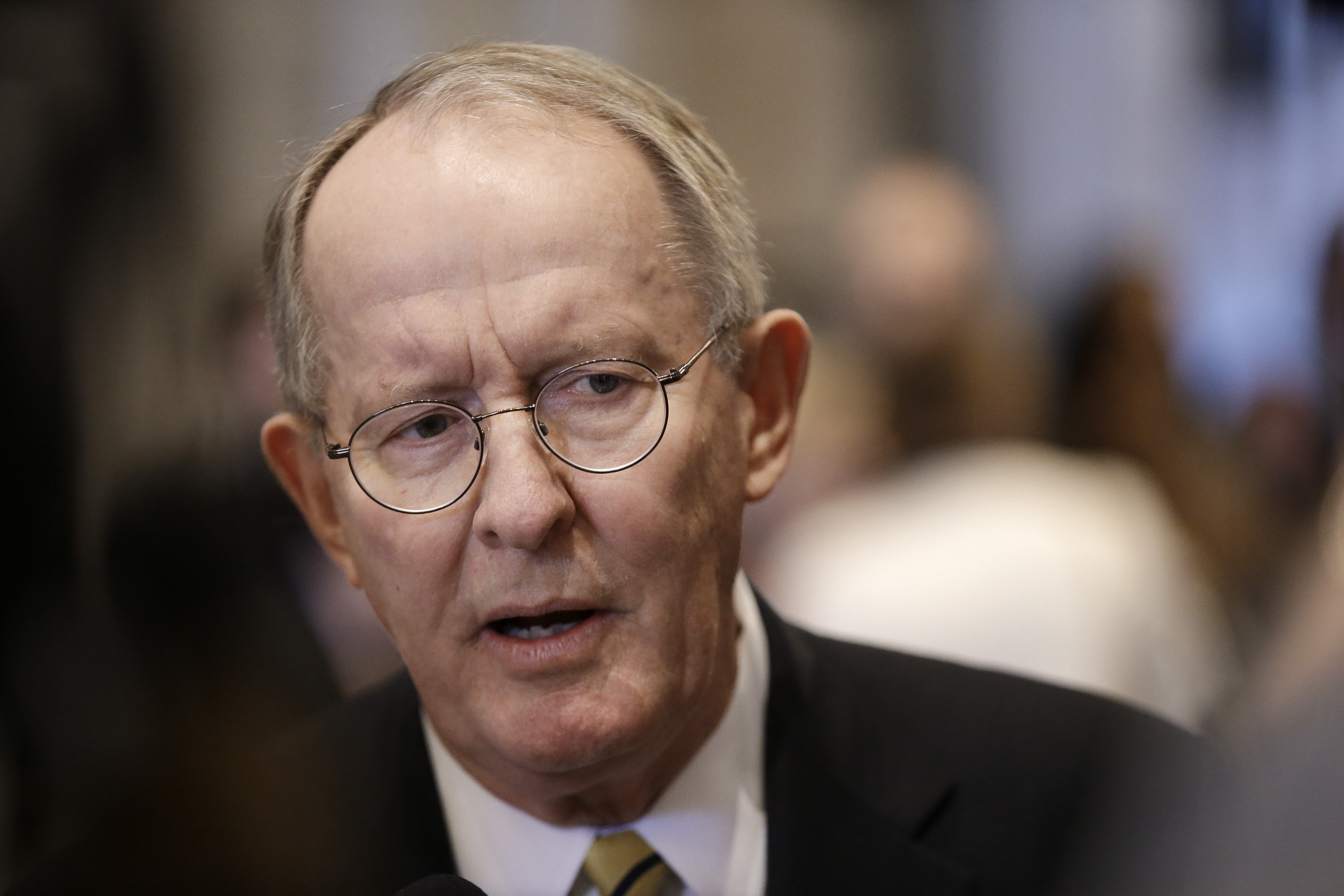WASHINGTON - Known as an elder statesman among Tennessee politicians, U.S. Sen. Lamar Alexander easily snatched up all the House members he wanted to support his 2014 re-election campaign. But many of those same conservative allies are ambivalent or even critical of the former governor's top legislative priority.
Alexander is shepherding an unusual bill for a keep-taxes-low Volunteer State Republican. The Marketplace Fairness Act would allow states to force Internet retailers to do what brick-and-mortar businesses have done for ages: Collect sales taxes on every transaction and give the money to state and local governments.
Or, in Alexander's words, give states the option to get "a tax that is already owed."
But leading fiscal conservatives, including U.S. Reps. Marsha Blackburn of Tennessee and Tom Graves of Georgia, describe it as the scourge of small-government advocates: a new tax.
"The last thing we should do is raise new taxes on hard-working Americans who are already struggling in the Obama economy," Graves said last week. Meanwhile, Blackburn put it bluntly: "There's nothing fair about the Marketplace Fairness Act."
As the 72-year-old Alexander attempts to dissuade potential tea party challengers in his bid for re-election, in-state opposition to his pet bill may undermine claims that he can still get things done and satisfy an increasingly conservative Tennessee electorate.
"Is it a liability for Alexander? It's not clear what the public thinks on this," Vanderbilt University political science professor Joshua Clinton said. "As a challenger, you may get some traction in the Republican primary."
Alexander has no challengers to date. To help keep it that way, he added every Tennessee Republican House member (except scandal-plagued U.S. Rep. Scott DesJarlais) to his campaign team late last year. So far they aren't helping him on this one.
"We have no formal position on the legislation at this time," said Tiffany McGuffie, a spokeswoman for U.S. Rep. Phil Roe.
The bill is expected to pass the Senate this week; earlier this year, a test vote garnered 75 supporters. But in the House, where a tea party philosophy reigns, the Marketplace Fairness Act faces an uphill battle if Alexander's own delegation is any indication.
"We don't need the federal government mandating additional taxes on Tennessee families and businesses," Blackburn said. "The American people have been taxed enough."
PUSHING BACK
During a Chattanooga visit Wednesday, Alexander said the Internet sales tax measure is not a tax increase, but simply a means of collecting taxes already due but rarely paid.
"It's a matter of collecting tax from those who aren't paying it," Alexander told reporters.
Conservatives are split over the tax measure. The American Conservative Union, the American Majority, Americans for Job Security, conservative columnist Charles Krauthammer and House Budget Chairman Paul Ryan, R-Wis., have all endorsed the Marketplace Fairness Act. But the bill is opposed by anti-tax activist Grover Norquist, Senate Finance Chairman Max Baucus and Internet retailer eBay, among others.
"Most conservatives favor states' rights," Alexander said Wednesday. "This bill is about allowing Gov. [Bill] Haslam and the Tennessee Legislature to decide whether they want to require out-of-state sellers to collect the sales tax in the same way that they require in-state sellers to do it."
A HOUSE DIVIDED
Including Blackburn, the six Tennessee House Republicans who signed up to help Alexander's re-election effort either oppose or haven't decided whether they'll support online tax legislation if it passes the Senate.
U.S. Rep. Chuck Fleischmann finds himself weighing arguments on both sides.
"Folks who oppose, they feel this is a tax on the Internet," the Ooltewah Republican said. "There's also a broad group of people in Tennessee who don't want any increase in taxes whatsoever. That is one school of thought."
Another undecided Alexander supporter is U.S. Rep. Jimmy Duncan, a Knoxville Republican.
"At this time, Congressman Duncan has very mixed feelings about the bill," spokesman Patrick Newton told the Tennessean. "He hates to increase taxes on anyone; but on the other hand, he hates to give an advantage to big out-of-state companies that we don't give to local small businesses."
Newton and the Tennessean article failed to mention one fact: 12 days after House members introduced their version of the Marketplace Fairness Act, Duncan signed on as a co-sponsor -- usually a sign of support.
"Members co-sponsor hundreds of bills," Newton told the Chattanooga Times Free Press.
Only Tennessee's House Democrats are publicly praising Alexander's bill. Steve Cohen, of Memphis, and Jim Cooper, of Nashville, are co-sponsoring the House version.
"This is not a new tax but the collection of an existing one, and everybody should be for that," Cooper said in a statement. "Online retailers should follow the same rules that Middle Tennessee's small businesses do."
Alexander's closest advisers say they've noticed the Volunteer State GOP opposition. Still, they claim to be above campaign politics at this point.
"It's not a new tax, but people will call it what they want," longtime Alexander campaign consultant Tom Ingram said. "And I'm sure we'll have respect for their opinions. It's the senator's job to lead and do what he thinks is right. He'll worry about the election after that."
Staff writer Dave Flessner contributed to this story.
Contact staff writer Chris Carroll at ccarroll@times freepress.com or 423-280-2025.

